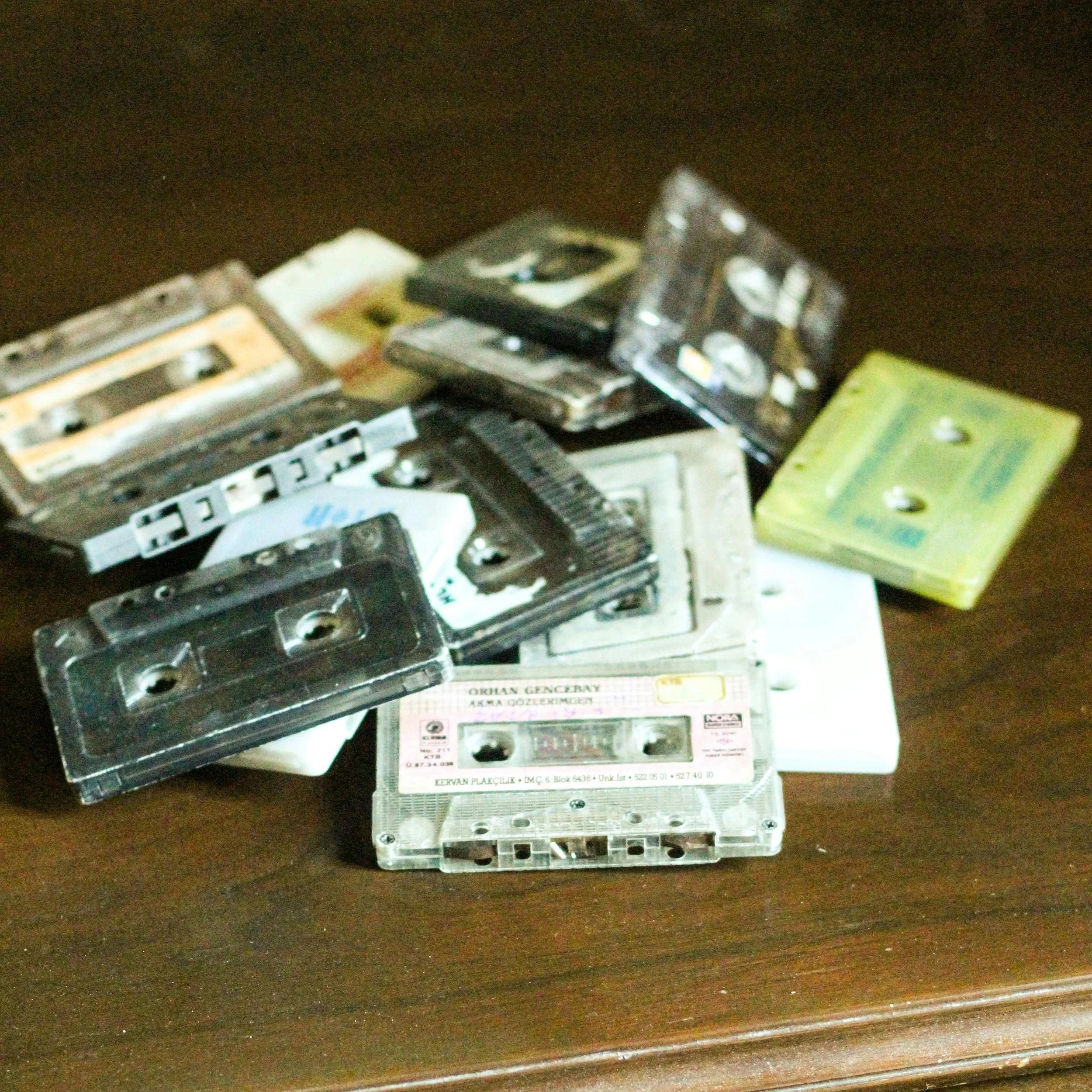Fat and 'F*ckable' - What Being Fat Has Taught Me about Desire
The desirability of fat women has never been a hotter topic than it is right now. The third season of Bridgerton sparked a roaring debate as the not-skinny Penelope and not-fat Colin finally fell into each other’s arms. This series takes place in a fantasy version of Regency London, where the string quartet plays Billie Eilish and the aristocracy is peppered with beautiful interracial couples. But the thing that finally asked us to suspend our disbelief too far is this ‘mixed-weight’ love match. Because how, dear reader, are we meant to believe that a handsome man would fancy a fat chick? Being a fat chick, I’d like to take you along on a whistle-stop tour of my experiences with being desired whilst living in a world that tries hard to convince me I can’t be.
All good love scenes should contain the word ‘fuckable’
In my early 20s, I spent a long weekend in Prague for work. My travel companions were busy on the dance floor, and I fell into a fun and engaging conversation with a very sexy Irishman. The details of the conversation mostly escape me, but I remember we talked about the TV show Lost, reading on trains and our spouses back home. We were both married – happily for my part, possibly less so for his.
As the evening progressed, we ended up on the dance floor. This was when I realised this man was very sexy. He moved well and had a spark in his eye, and other women were hungrily trying to insert themselves between us. To me, his looks mattered as little as I expected my fatness mattered to him. From my point of view, we were mates now. We had great chemistry, laughed a lot, and were simply enjoying some flirty-but-platonic company while on our respective work trips. It surprised me then, when he later stared deep into my eyes and leaned forward. His stubbled cheek brushed lightly against mine as he moved his lips so close to my ear that they sent a shiver down my spine. With his deep, gravely voice, he whispered these endlessly romantic words: you’re pretty fuckable for a fat chick.
Over the years, this story has served me well. People’s reactions to his whispered line have varied from roaring laughter, to disappointed groans, to loud gasps. There was even an “I hope you punched him!” at one point.
When people ask what I did, I usually say I laughed, which is the truth – if not the whole truth. I did laugh. The situation seemed hilarious to me, and I couldn’t for the life of me understand what he thought he would achieve with the line. Did he think that knowing I was fuckable (for a fat chick) would be such a turn on I’d drop my knickers right then and there? Did he think I’d be so flattered that I’d go back to the hotel with him? Whatever he thought, he meant it as a compliment. My reaction didn’t please him, and we soon went our separate ways. But what I’ve rarely talked about is the part of me that didn’t laugh. The part of me that felt endlessly, hopelessly tired.
Everyone was fat in 2002
If you, like me, had your teenage years in the late ’90s and early 2000s, you know that feeling fat was unavoidable. The line between ‘skinny’ and ‘fat’ went somewhere between size 8 and size 10, but you were still allowed to complain about your ‘massive thighs’ or ‘muffin top’ or ‘fat arms’ no matter what single-digit size you were. If you weren’t skinny, you were fat. Bridget Jones was ‘fat’ at 136lbs and Hanne Hathaway really did go from an ‘enormous’ size 6 to an acceptable size 4 during the filming of The Devil Wears Prada.
Not being skinny was not just about looks. It was a physical manifestation of your mental weakness. Proof that you were completely lacking in fundamental virtues like willpower, self-control and grit. Genetics, health and personality be damned – we were in the age of ‘heroin chic’. If we were ever in doubt as to why it was all worth it, we soon had Kate Moss famously reminding us that “nothing tastes as good as skinny feels”.
Looking back at 16-18-year-old me, I was – in fact – not fat, I was just not skinny. However, compared to Penelope, I was massive; I wore a size 14. Then 16. Then 18. By all cultural hallmarks – I was fat.
What I had learned from all the films and books and magazines I consumed was that my life’s mission should now be to lose weight. Media had successfully convinced me that being fat meant I couldn’t be loved, desired or romanced. That is, unless my ‘prince charming’ was hypnotised into ignoring my fatness and seeing my inner beauty, like in Shallow Hal, but that didn’t really appeal to me. Sleeping with fat girls was not something nice, good-looking men did on purpose. It could only be a drunken mistake, the consequence of a brain injury, or the punchline of a joke. The truths were confirmed again and again – skinny women were desired, fat women were not.
Fat does not protect you
When you’re constantly reminded that you’re too fat to love, it’s very easy to believe it’s true. When someone then shows you interest, or seems willing to love you, you may end up feeling like you should be grateful for the attention. And what’s worse – they might think so too. Through my younger years, there were a number of flirtatious moments that ended with an angry, “As if anyone else would want you!” There were even a couple of boyfriends whose desire for me was visible and tangible, but who – when I wasn’t ready or willing to put out – made it clear that I should be grateful for the offer. “I could do a whole lot better than you, you know!”
I put on more weight, but was still not rendered undesirable. At a particularly vulnerable moment – I was ill, medicated and dozy from a fever – a different ‘friend’ whispered a set of words I will never forget: “How am I supposed to keep my hands off you when you’re lying there all warm, soft and small?” In retrospect, I’m not sure how hard he tried, but I know that being fat did not protect me.
We learn these things together
Other women had internalised the same messages about fat women as I had. Skinny girls would point to me and whisper to their partners, “Am I skinnier than her?” and I would look for even fatter women and do the same. I didn’t even hate my body. I just knew I ought to.
Once, I found myself in a gaggle of supportive women comforting a friend of a friend. Her boyfriend had cheated on her, and the breakup seemed unavoidable. He insisted it had been a drunken mistake and didn’t mean a thing. She insisted that he’d made a choice, and worried she could never trust him again.
Everything changed when she found out who ‘the other woman’ was. A fat woman. Not quite as fat as I was at the time, but almost. Phew. Clearly, the sex couldn’t have meant anything to him. He must have been incredibly drunk. In fact, ‘the other woman’ must have taken advantage of him in his drunken stupor. Because (the term ‘no offense’ was repeatedly directed at me here – these were nice people) there was no way he’d have slept with a woman ‘like that’ willingly.
The worst part of this memory is that I remember agreeing. Despite all my experiences with men desiring me – despite feeling consistently desired by my own boyfriend – it never occurred to me for a moment that attraction could have played a part here. How could it have?
Since then, I’ve gained both the language and tools to deconstruct and reconstruct my body image. But even back at that bar in Prague, the ridiculousness of it all was becoming too much. I was exhausted. In addition to carrying my excess weight, I was carrying everyone else’s relationship with my weight too. Their guilt over their attraction, sometimes undisguised disgust, their many assumptions about my mental health, eating habits and intelligence. This, I had started to realise, was baggage given to them by the same shows and magazines that had told me no one would ever want me in the first place.
What being fat has taught me about desire
I’m now married to a wife who both loves and desires me. And what I have learned is that desire is situational. It’s based on chemistry, mood, personality, jokes, humour, laughter, physical touch, intimacy and whatever else is flying through the air in the moment – all things that can’t be measured on the BMI scale. Desire – like the experience of being a fat woman – is not one-size-fits-all. It’s something personal, flexible, and elastic enough to encompass all shapes and sizes.
The Bridgerton mixed-weight discussion is neither a useful nor a healthy one. Firstly, how are we still publicly discussing real people’s (yes, actors are real people) bodies in the good year 1 ABM (Anno Barbie Movie)? But more importantly, there is no good take here. The questions ‘Is Penelope actually fat?’, ‘When will we see a truly fat lead?’ and ‘Is body positivity promoting obesity?’ are all distracting us from the issue: Who cares? Who benefits from us repeating these stupid, outdated ideas about fat people?
Penelope’s weight didn’t matter to Colin Bridgerton, and it might not have mattered to you if the opportunity arose. Somebody doesn’t have to be your cup of tea to be perfect for someone else. That’s simply not how attraction works. There are entire cultures in which fatter women have more clout. There are numerous accounts and descriptions of ‘great beauties’ through the ages, who – no matter how many ‘cleanses’ or ‘shakes’ or ‘cheese cube diets’ they went on – wouldn’t have fit in size-10 trousers. Weight and obesity are not inherently linked to someone’s humour, personality or charisma. They’re therefore not indicative of their attractiveness – not in real life. On screen, the fat lady’s only job is to wilt in the background and sing when it’s all over. Out here, her night may not be over before her partner makes her scream.
My life no longer takes me to bars in Prague, or facilitates flirtatious encounters with sexy Irishmen. But should I, in this very obese body, find myself in a similar situation, and someone whispers that I’m ‘pretty fuckable for a fat chick’, I know what I will do. I will lean in, wink, lower my voice and whisper: “Oh, honey, I know.”
Written and illustrated by M.Amelia Eikli
M. Amelia Eikli is a Norwegian author, artist and project alchemist. She loves to-do lists, 30-day challenges and a never-ending parade of hobbies. She lives with her wife and over-filled bookshelves in Weston-super-Mare. Her socials are all @ameliabilities






